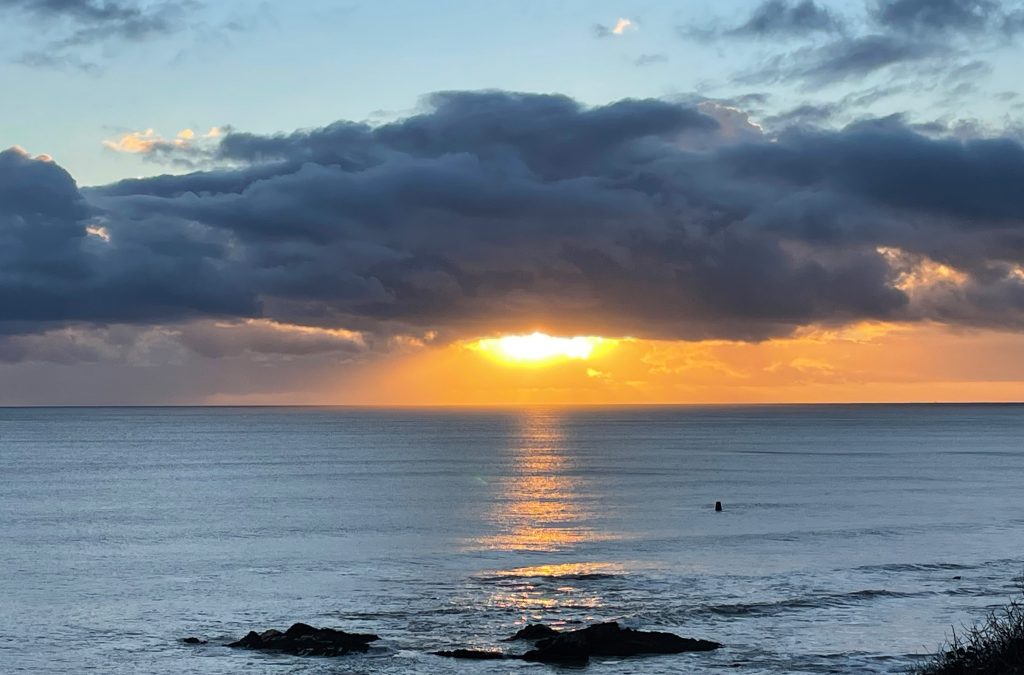This month has been a very exciting one for me personally, because our business, Railholiday, had the great honour of winning the Most Sustainable Small Organisation at the Cornwall Sustainability Awards.
As my husband Dave and I headed to the podium, I had to do some quick thinking as to what I would like to say. Of course thanking the awards team was at the top of the list; the organisers and judges of the Cornwall Sustainability Awards work tirelessly to promote and encourage sustainability in Cornwall, and provide businesses such as our own something to aspire to. It was also wonderful to meet other sustainable businesses from throughout Cornwall; there are some truly inspirational groups and individuals doing amazing work within our county, and their influence is far reaching.
Influence is to be celebrated. We all have the ability to influence, even in a small way. This can be at work, home or play. Christmas time offers the perfect opportunity to talk and share ideas. However trying too hard to influence can easily backfire. Recently I went to an excellent conference entitled the Psychology of Change, run by the inspirational Manda Brookman of Cafe Disruptif. I’d like to share some of the tips here. I’ve added italics for Manda’s key points.
- 1. It’s not about transmitting or throwing data around or insisting you are ‘rational’. We need to feel heard, inspired, excited, outraged, delighted and energised. In any conversation, the listening element is the most important thing. Listen to the concerns of your friends and family. Take them on board. Find out what energises them, what outrages, what delights. Always think debate rather than argument. You may disagree on issues, but the chances are there will be lots of common ground too. Find the common ground and build on it. Think about what you have been told. Work our solutions.
- 2.We don’t like being told what not to do. Change happens: when we’re offered, or helped to create, a better alternative. This is so true. Until we can easily reach places by public transport or on bike or foot, we will continue to use our cars. Until we are offered locally made products, or easy access to quality second-hand items, we will continue to ship new things from abroad. Until organic food is the same price as non-organic, we will make choices according to our means. Until there is a plethora of local jobs, we will continue to commute etc. etc. Dream of the future you would like to see, and work our ways it might be able to happen.

- 3. We don’t like to feel like we’re the only one making the change. We love feeling we’re part of a bigger tribe that’s doing something brilliant, even if it’s all about changing something. Change is so much easier when you don’t feel you are working in isolation. It’s like a solitary dancer who inspires the party to get up and move. One person acting alone is a maverick, a single person following the maverick has to have guts, but the next person will inspire a third, a fourth, a fifth, until gradually it feels odd to be outside the movement. This is how change happens; like a snowball running down a hill. We have a human need for love, friendship and approval. Find people who are doing brilliant things and join them.
- 4. We don’t like to be told we’re wrong. We love the chance to co-operate and feel valued – and finding common ground we can all work in. This goes back to point one, on the importance of listening. And equally on the importance of giving praise, and appreciating and encouraging friends and family when they make changes, no matter how small. We are all in this together. Gently breaking down barriers is important.
- 5. We don’t like people saying one thing and doing another – and telling us to change. We change when we see people we trust leading… and great examples that are changing the social norm. Practicing what you preach is as important in green living as it is in any other area of life. Though hopefully there will be less preaching and more listening! There are many examples where the exceptional becomes the norm. I’m sure some readers will remember when recycling was not mainstream, and there were plenty of those that thought it wouldn’t work.
A final word; be kind. Christmas is a great time of year for socialising and conversations, but it’s also the hardest time of year to stick to environmental principles. Don’t be too harsh on yourself or others if you don’t manage to get things right every time. Try to get outside and spend time in the fresh air and wild spaces, as a reminder of why we love the world and want to save it. From the 21st the days get longer; the winter solstice was probably the most important event in our ancient calendar. Rejoice in the changing seasons and welcome in the light.
